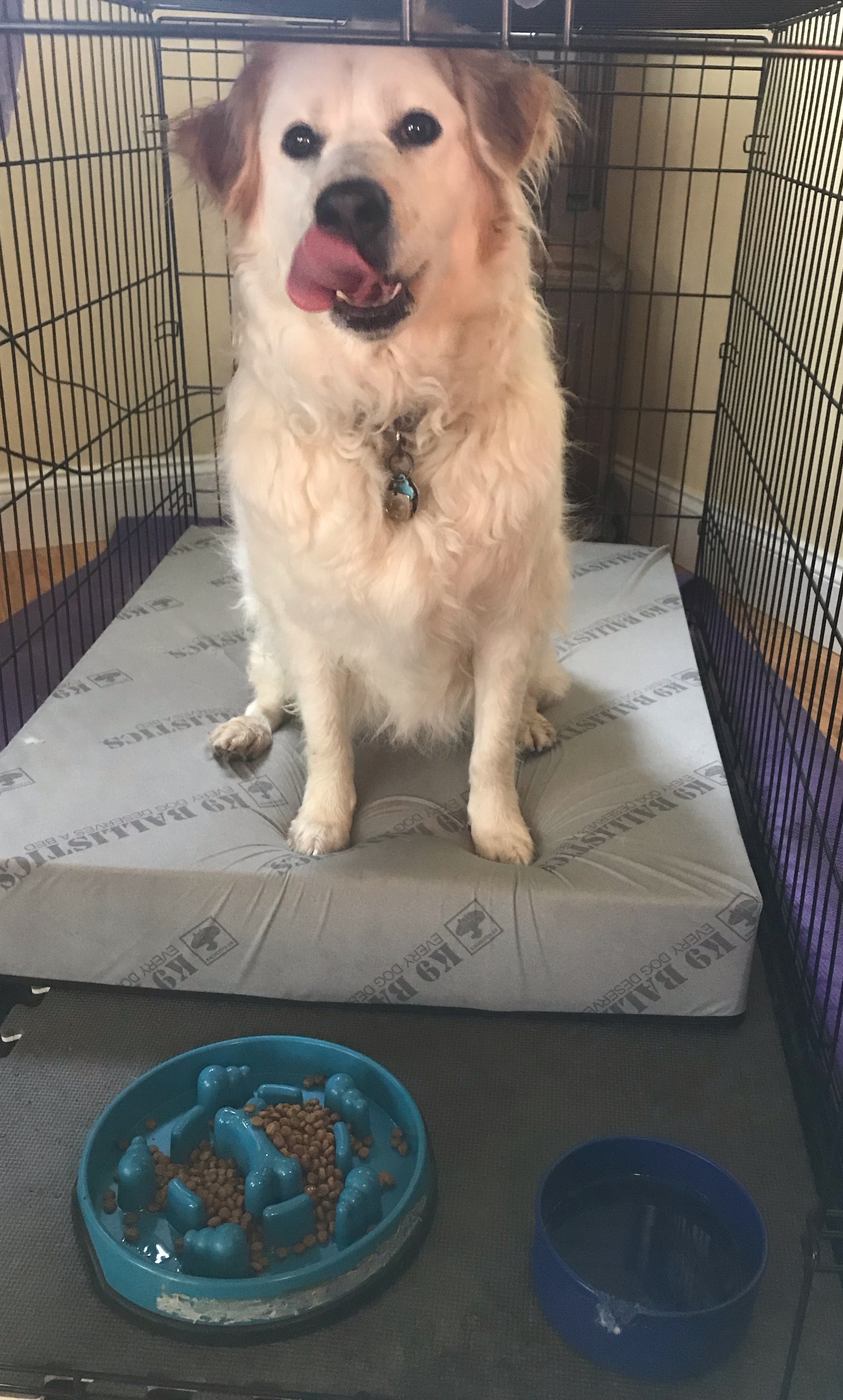Newest Information on Diet-associated Heart Disease (DCM: Dilated Cardiomyopathy)

This disease left untreated can lead to heart failure, so I wanted to make sure my furry friends and their parents know all about it. Most importantly, I’d like to tell you about a way to potentially prevent nutritional DCM. It starts by paying close attention to the food you are giving your pets.
Since I bet you love your 4-legged friends a lot, I thought you’d be interested to know which brands and product lines are recommended by my mom and other doctors out there, and why. I’ll also tell you about some potential causes of DCM, symptoms linked specifically to nutritional DCM, and what our owners can do to help ensure we’re eating the most nutritious food out there.
Potential Causes of DCM
My mom and other doctors say there are several potential causes of DCM. For example, nutritional deficiencies of taurine or carnitine have been linked to DCM in certain breeds, like Dobermans and Boxers. Some genetic mutations have been found in breeds like Doberman Pinchers, Boxers, Standard Schnauzers, and Newfoundlands. Other potential causes include some infectious diseases, like parvovirus.
This disease has been in the news lately and has gotten a lot of attention from veterinarians, including my mom. She continues to read articles about this disease and potential causes to keep up to date on the latest information. Apparently, dogs with normal taurine levels are now getting Diet-associated DCM.
Diet-associated DCM with Normal Taurine Levels
In early 2018, there was a rise in dogs being diagnosed with dilated cardiomyopathy. These dogs were not your typical dogs that are predisposed to this potential genetic disease. Cardiologists realized that these dogs were being fed exotic, boutique, or grain-free diets, and thought that supplementing with taurine would improve the dog’s condition. However, this wasn’t the case in all of the dogs.
In fact, in some of these affected dogs, taurine blood levels were normal, but they still were being diagnosed with this disease. The concern is that these diets may be inhibiting taurine from being absorbed, and therefore supplementing with taurine doesn’t work in these cases. My mom recommends a diet change for any dog on a grain-free diet.
Research Findings
I like to hear what experts have to say about it, so I had my mom find me some statistics to back this up:
According to a recent article published by Cummings Veterinary Medical Center at Tufts University, “There is suspicion that the disease is associated with eating boutique or grain-free diets, with some of the dogs improving when their diets are changed. The US Food and Drug Administration (FDA) Center for Veterinary Medicine and veterinary cardiologists are currently investigating this issue.”
A recent article from Clinician’s Brief stated, “In July of 2018, the US FDA released a notice regarding reports from veterinary cardiologists of suspected diet-associated DCM in dogs not typically predisposed to DCM. Since then, the FDA has released an additional update on their investigation, reporting over 300 dogs with suspected diet-associated DCM as of November 2018.”
Additional Research Links
Additional research supports this suspicion. You can check out the following articles to learn more:
- https://taurinedcm.org/wp-content/uploads/2018/10/Taurine-DCM-Letter-updated-links.pdf
- https://taurinedcm.org/wp-content/uploads/2018/10/UCD-Diet-and-DCM-Handout.pdf
- https://taurinedcm.org/wp-content/uploads/2018/10/vetnutrition.tufts_.edu-A-broken-heart-Risk-of-heart-disease-in-boutique-or-grain-free-diets-and-exotic-ingredients.pdf
- https://taurinedcm.org/wp-content/uploads/2018/10/FDA-1st-publication.pdf
- https://taurinedcm.org/wp-content/uploads/2018/10/FDA-2nd-publication.pdf
- https://taurinedcm.org/wp-content/uploads/2019/05/FDA-Investigation-into-Potential-Link-between-Certain-Diets-and-Canine-Dilated-Cardiomyopathy.pdf
- https://taurinedcm.org/wp-content/uploads/2019/05/FDA-Provides-Update-on-Investigation-into-Potential-Connection-Between-Certain-Diets-and-Cases-of-Canine-Heart-Disease.pdf
- https://taurinedcm.org/wp-content/uploads/2019/05/Questions-Answers-FDA-Center-for-Veterinary-Medicine%E2%80%99s-Investigation-into-a-Possible-Connection-Between-Diet-and-Canine-Heart-Disease-FDA.pd
Symptoms of DCM
The following symptoms are sometimes associated with nutritional DCM, referring to cases where the cause of the disease is directly related to the canine’s diet:
- Intolerance to exercise
- Excessive panting when not exercising
- Inability to get comfortable, restless changes in position
- Difficulty breathing
- Coughing
- Lethargy
- Depression
- Loss of appetite and/or weight loss
- Accumulation of fluid in the abdomen
- Collapse
*As with any disease, a pet with DCM may show many symptoms, few symptoms, or none of the above.
Preventing Nutritional DCM
If I didn’t know better, I’d be really worried about this disease, and wonder if there is anything that can be done to prevent it. But, my mom said there are a few ways that pet owners can help ensure they’re buying the best food for their animals, and to prevent nutritional-related DCM.
1. Buy from Brands that Invest in Nutritional Research.
My mom says that the best way to prevent nutritional DCM is “to buy your food from a company that has shown a commitment to doing regular nutritional research.” She said to avoid smaller, boutique brands that don’t have the resources to invest in nutritional research.
2. Look for Evidence of AAFCO Feeding Trials.
Association of American Feed Control Officials (AAFCO) feeding trials ensure a food product has been analyzed in its final form, rather than simply assuming its nutritional effect based on the ingredients and recipe. If it isn’t noted on the food packaging, my mom said you can contact the manufacturer to confirm whether the brand meets AAFCO nutrient profiles.
3. Avoid Exotic Ingredients.
My mom also said to avoid pet foods which list the following as the main ingredient: peas, lentils, fava beans, tapioca, barley, chickpeas, and other legume seeds. She said it’s also a good idea to avoid pet foods which include exotic ingredients, such as kangaroo, duck, buffalo, bison, or venison.
4. Avoid Grain-Free Diets.
And last but not least, my mom and other vets said that grain-free foods should be avoided altogether due to their potential to cause nutritional DCM.
Helpful Links & Tools
I found this great tool that helps summarize how to choose the best food for your pet. Take a look.
I also sniffed upon another great link with common FAQS, here.
WSAVA Recommendations
Four U.S. pet food brands that WSAVA recommends based on the company’s responses to the questions above include:
- Royal Canin
- Science Diet
- Purina (most formulas)
- Eukanuba
I personally (canine-ly) like Royal Canin the best. It tastes good and gives me everything I need to be healthy. But, any brand recommended by WSAVA is okay, according to my mom.
What if My Dog is Eating a Boutique or Grain-free Diet?
I asked my mom what she recommends to dog parents currently feeding their dogs boutique or grain-free diets. She said:
- Talk to your veterinarian about how to choose the right food for your pet.
- Test your dog’s blood and plasma for taurine levels at UC Davis Lab.
- Report it to the FDA. Did you know that the FDA may be able to help with testing costs for your dog? Plus, it could help to identify and solve the issue, and potentially take harmful products off the market. That would be great for me and my 4-legged friends!
- Change your dog’s diet to a well-known, reputable company that contains standard ingredients (chicken, beef, rice, corn, wheat). Your vet may also recommend supplementation.
- See a Cardiologist. Remember; your dog’s taurine level may be normal and his/her heart may still be affected by this diet.
Even after taking the steps above, it may take some time for any improvements in the disease to show. And, unfortunately, there are no guarantees that these efforts will completely solve the issue. Your dog may need regular monitoring and additional heart medications as well.
Want to keep up to date on the latest information? Monitor taurinedcm.org and follow Acupetvet on Facebook. As new information comes in, my mom and I will keep you updated on the latest news and best recommendations. Or, contact us directly for a nutrition consult, here.


